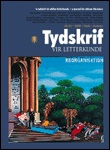The Congo as topos of dystopic transgression in fin-de-siècle literature
DOI:
https://doi.org/10.4314/tvl.v46i1.29842Keywords:
degeneration, colonialism, Joseph Conrad, Henri van Boven, fin-de-siécle literatureAbstract
In this essay, I compare the representation of the Congo as a topos of dystopic transgression in Conrad’s Heart of Darkness (1902), and in a lesser-known novel entitled Tropenwee (Tropical agony) by the Dutch author Henri van Booven, published in 1904. The idea of the Congo as a locus of degeneration will be read, not so much as a Conradian theme, but rather, as an idea that had gained wide currency throughout Europe during the fin-de-siècle period. Particular attention will be paid to some of the narrative techniques that shape this idea and the ideological assumptions it conveys. Moreover, I hope to show that degeneration as reflected by the writings under investigation is at once a colonial and anti-colonial theme, and therefore its significance requires moving beyond singular and clear-cut ideological labels.
Downloads
References
...
Downloads
Published
Issue
Section
License
Copyright (c) 2009 Tydskrif vir Letterkunde

This work is licensed under a Creative Commons Attribution-ShareAlike 4.0 International License.


 https://orcid.org/0000-0001-6465-6584
https://orcid.org/0000-0001-6465-6584


.png)